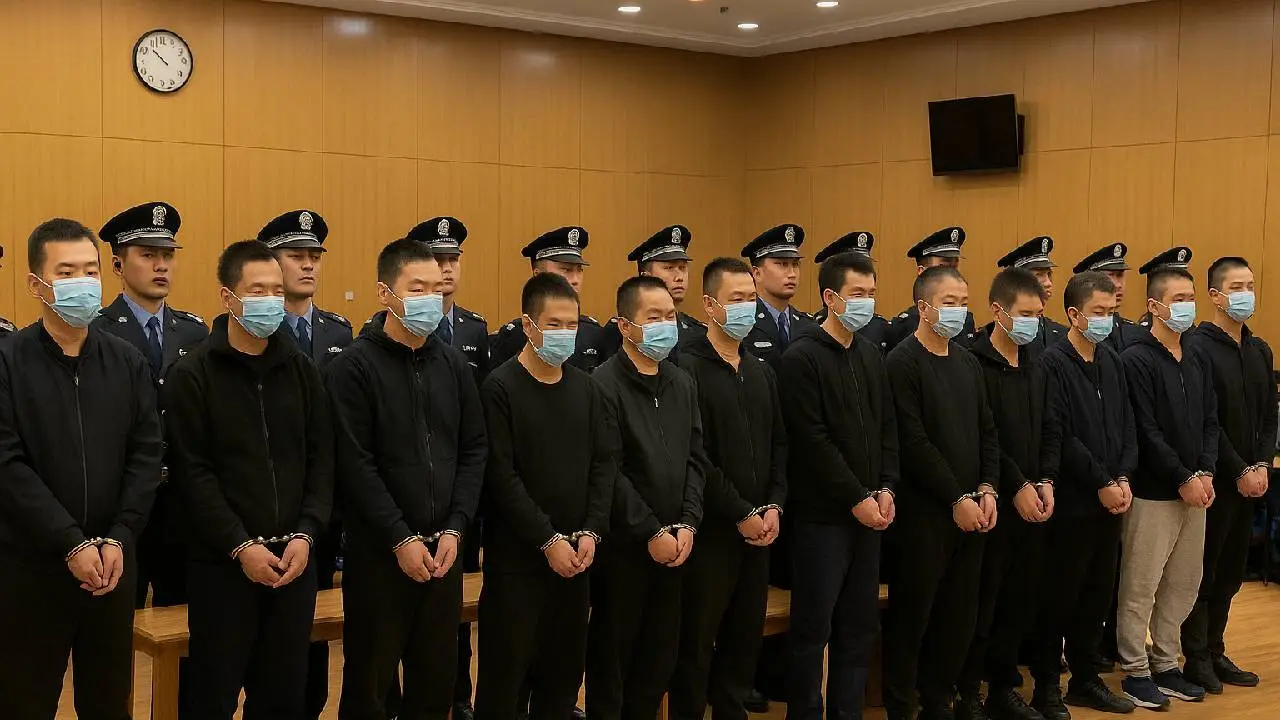
Court Exposes Fraud (Credit: Ai)
International News: A Chinese court has sentenced 11 members of Myanmar's infamous Ming family to death. The action was taken against a multinational fraud ring run by the Ming family, which has its roots in illegal trade across the China-Myanmar border. According to state media reports, the verdict was handed down by a court in Wenzhou, eastern China, where 39 convicts were given varying sentences.
This case exposes the horrific reality of organized fraud, drug, gambling, and human trafficking gangs not only in Myanmar but throughout Southeast Asia. China has taken this matter seriously, not only taking strict action against the accused but also exerting pressure on the regional scam network.
According to state broadcaster CCTV, a total of 39 members of the Ming family were sentenced, with 11 receiving the death penalty outright, five receiving a two-year conditional death sentence, 11 receiving life imprisonment, and the rest receiving prison sentences ranging from 5 to 24 years.
The court found that the Ming family had organized illegal activities since 2015, including online fraud, illegal casinos, drug trafficking, and prostitution. These activities generated 10 billion yuan (about $1.4 billion) in ill-gotten wealth.
The Ming family operated in the area of Lawkyng in Myanmar's Shan State, a hub of crime and fraud. The family was one of the four most influential clans there, controlling fraud centers employing at least 10,000 employees. The most notorious center was the "Crouching Tiger Villa," where workers were tortured and beaten.
This site became a symbol of human rights violations. Even murder was not shunned, with shootings being the last resort. The court also found that the Ming family and their affiliated criminal groups killed or shot and injured several workers to prevent them from returning to China. These crimes were intended to intimidate workers and force them into fraud.
The United Nations has described networks like the Ming family's as a fraud epidemic. More than 100,000 foreign nationals, including a large number of Chinese citizens, were trapped in this network. They were imprisoned and forced into online fraudulent activities. These gangs carried out elaborate fraudulent operations targeting people around the world. Lǐqíng and the surrounding area became a hub of money laundering, smuggling, and cyber fraud.
Nearly two years ago, a coalition of insurgent groups drove the Myanmar military out of many parts of Shan State and captured areas like Lawkyng. Reports suggest China indirectly supported this military operation. During the conflict, Ming Xuechang, the head of the Ming family, committed suicide, while other members were handed over to Chinese authorities. Some of the perpetrators have expressed remorse and admitted their guilt.
With this decision, China has sent a clear message that it will not tolerate illegal activities and fraudulent networks operating across its borders. Under pressure from Beijing, Thailand also cracked down on such scam centers along the Myanmar border earlier this year. However, these networks have relocated to new locations like Cambodia, where they continue to operate actively.





Copyright © 2026 Top Indian News
